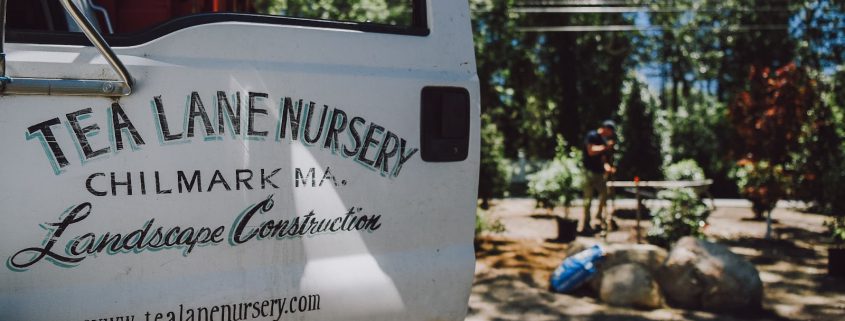All About Organic Landscaping on Martha’s Vineyard
Organic landscaping is a fantastic way to enhance the beauty of your outdoor space while also being kind to the environment. On Martha’s Vineyard, where the natural beauty of the island is treasured, organic landscaping is especially important. Not only does it preserve the island’s unique ecosystem, but it also has numerous benefits for human health and the economy. In this article, we will discuss everything you need to know about organic landscaping on Martha’s Vineyard, including the benefits, planning and design, and maintenance.
The Benefits of Organic Landscaping
Organic landscaping is a sustainable and environmentally friendly approach to landscaping that involves using natural, non-toxic methods to design, install, and maintain a landscape. There are many benefits to organic landscaping, including:
Environmental benefits: Organic landscaping helps to preserve the natural ecosystem by reducing pollution and conserving water. It also promotes biodiversity by using native plants that support the island’s wildlife.
Health benefits: Organic landscaping eliminates the use of toxic chemicals that can harm human health and the environment. It also promotes physical activity and mental well-being by encouraging people to spend more time outdoors.
Economic benefits: Organic landscaping can save money in the long run by reducing the need for costly chemical fertilizers and pesticides. It also supports the local economy by promoting the use of native plants and other locally sourced materials.
Planning and Design
When planning and designing an organic landscape, it’s important to assess the site, choose the right plants, and create a sustainable irrigation system. We have a few blog posts prior to this one on the various plants for the different seasons, you can find them here.
Assessing the Site: The first step in planning an organic landscape is to assess the site. This includes conducting a soil analysis, determining the sun and shade patterns, and assessing the drainage. By understanding the unique characteristics of your site, you can choose plants that will thrive and create a sustainable irrigation system that will conserve water.
Choosing Plants: When choosing plants for your organic landscape, it’s important to consider the island’s unique ecosystem. Native plants are a great choice because they are well-adapted to the local environment and support the island’s wildlife. Drought-tolerant plants are also a good choice because they require less water and can thrive in the island’s dry summers. Pest-resistant plants are also an excellent option because they are less susceptible to pests and diseases, which reduces the need for chemical pesticides.
Creating a Sustainable Irrigation System: A sustainable irrigation system is essential for an organic landscape. Rainwater harvesting, drip irrigation, and mulching are all effective ways to conserve water and reduce the need for irrigation.
Maintenance
Organic landscaping requires regular maintenance to ensure that it remains healthy and beautiful. This includes organic fertilization, pest, and disease management, pruning and trimming, and mowing and lawn care.
Organic Fertilization: Organic landscaping relies on organic fertilization methods, such as composting, organic fertilizers, and cover crops, to provide the plants with the nutrients they need.
Pest and Disease Management: Integrated pest management, biological control, and homemade pest repellents are all effective ways to manage pests and diseases in an organic landscape.
Pruning and Trimming: Proper pruning techniques and timing are essential for maintaining the health and beauty of an organic landscape.
Mowing and Lawn Care: Alternatives to traditional lawns, such as meadows or wildflower gardens, can reduce the need for mowing and chemical pesticides. When a traditional lawn is used, mowing with a reel mower and grass cycling can reduce the need for chemical fertilizers.
Conclusion
Organic landscaping is an environmentally friendly and sustainable approach to landscaping that has numerous benefits for both the environment and human health. On Martha’s Vineyard, where the natural beauty of the island is treasured, organic landscaping is especially important. By assessing the site, choosing the right plants, and creating a sustainable irrigation system, you can create a beautiful organic landscape that will enhance the beauty of your outdoor space while also being kind to the environment. And with regular maintenance including organic fertilization, pest and disease management, pruning and trimming, and mowing and lawn care, you can ensure that your organic landscape remains healthy and beautiful for years to come.
This way of landscaping is a fantastic way to enhance the beauty of your outdoor space while also being kind to the environment. Not only does it preserve the island’s unique ecosystem, but it also has numerous benefits for human health and the economy. By understanding the unique characteristics of your site, choosing the right plants, and creating a sustainable irrigation system, you can create a beautiful organic landscape that will thrive on Martha’s Vineyard. And with regular maintenance, you can ensure that your organic landscape remains healthy and beautiful for years to come. So, next time you are thinking about landscaping your outdoor space, consider going organic. Not only will you be doing a favor to the environment, but you’ll also be enhancing the beauty of your outdoor space, and promoting a healthy and sustainable lifestyle.







